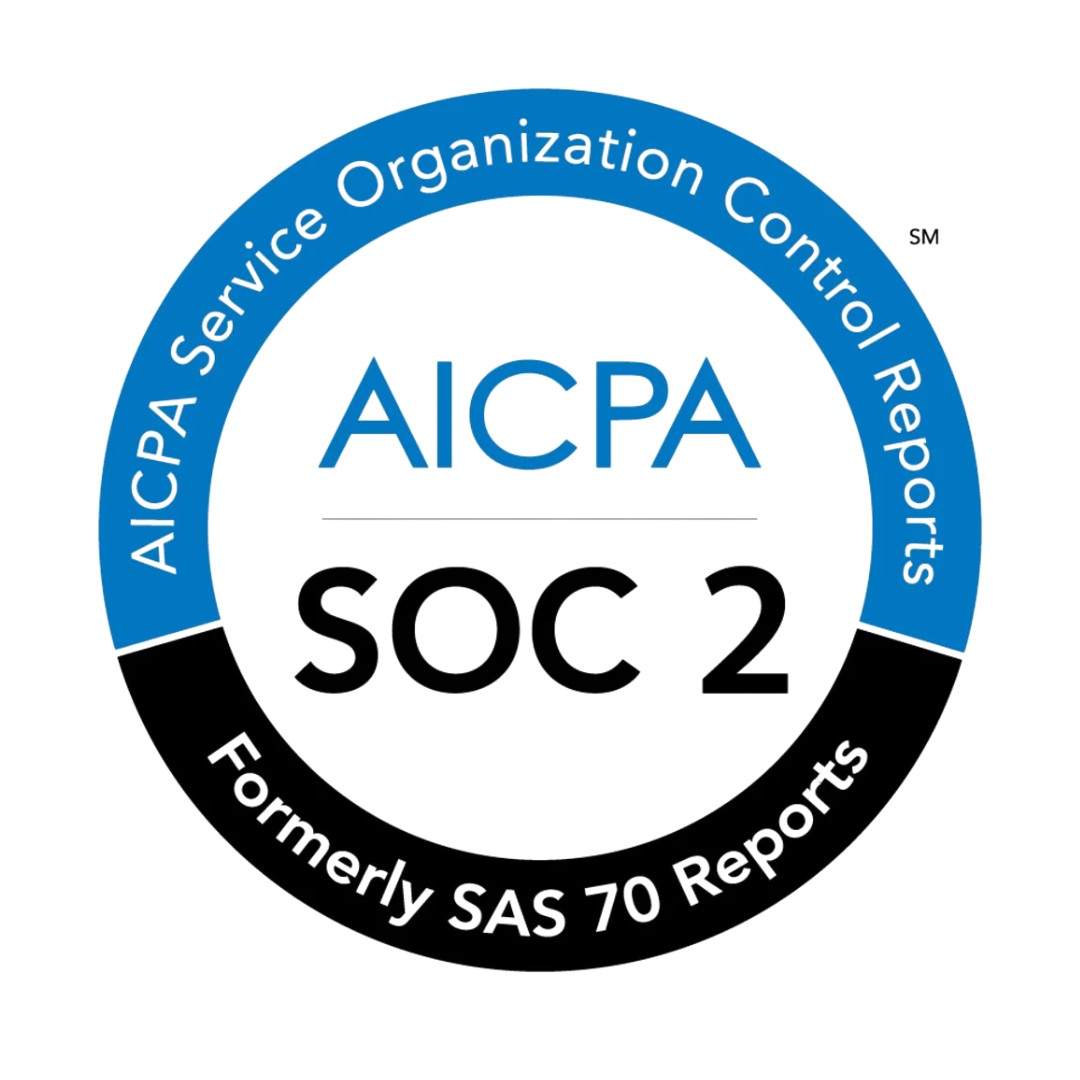The fintech funding landscape has undergone significant changes in recent years, with global fintech funding reaching $105 billion in 2022, marking a 22% decline from the previous year (Qubit Capital). However, analysts predict a rebound in fintech investments leading up to 2025, making it crucial for founders to understand the current funding dynamics and structure their rounds accordingly.
For fintech founders navigating today's funding environment, understanding average angel check sizes and optimal round construction has become more critical than ever. With fresh 2025 data indicating that typical U.S. angel tickets range from $25,000 to $100,000, and investors increasingly prioritizing sub-$30 million valuations, founders need a data-driven approach to building their capital stack (This Week in Fintech).
The Current Angel Investment Landscape
Understanding Angel Check Size Distribution
The angel investment market in 2025 shows distinct patterns in check sizes that vary significantly based on investor type and round dynamics. According to recent market data, the typical angel investor in the U.S. fintech space writes checks between $25,000 and $100,000, with the median falling around $50,000 (Signal NFX).
This range reflects several key factors:
• Individual angel investors: Typically write $25,000-$75,000 checks
• Angel syndicates: Often contribute $50,000-$150,000 per deal
• Operator-angels: Range from $10,000-$50,000 based on their operational involvement
• Micro-VCs: Write larger checks of $100,000-$500,000 but with institutional processes
The variation in check sizes is particularly pronounced in the fintech sector, where regulatory complexity and market dynamics create different risk profiles for different types of financial technology companies (InnReg).
Pre-Seed vs. Seed Stage Dynamics
Pre-seed funding has become the fastest growing round type, responsible for 20%+ of all venture rounds globally (Metal). At the pre-seed stage, investors have varying expectations, with accelerators commonly investing in companies that do not yet have revenue or product, while other venture investors tend to expect some form of market validation or an early prototype.
The distinction between pre-seed and seed investors is crucial for fintech founders. Most investors that specialize at seed do not specialize at pre-seed, and vice versa (Metal). This creates different funding dynamics:
Pre-seed characteristics:
• Round sizes typically $500K-$2M
• Valuations in the $3M-$8M range
• Higher tolerance for early-stage risk
• Focus on team and market opportunity
Seed characteristics:
• Round sizes typically $1M-$5M
• Valuations in the $8M-$25M range
• Emphasis on traction and product-market fit
• More structured due diligence processes
Building Your Capital Stack: Three Scenarios
Scenario 1: The $750K Pre-Seed Round
For a $750K pre-seed round targeting a $5M pre-money valuation, founders need to carefully structure their investor mix to optimize for both capital efficiency and strategic value.
Investor Composition:
• 8-12 individual angels at $25K-$50K each ($300K-$400K)
• 2-3 angel syndicates at $75K-$100K each ($200K-$250K)
• 1-2 micro-VCs or institutional pre-seed funds ($150K-$200K)
Dilution Analysis:
• Pre-money valuation: $5M
• Post-money valuation: $5.75M
• Founder dilution: 13.04%
Based on typical conversion rates in the current market, founders should plan to:
• Contact 150-200 individual angels (assuming 5-8% conversion)
• Approach 20-30 syndicates (assuming 10-15% conversion)
• Target 10-15 institutional pre-seed investors (assuming 15-20% conversion)
This approach aligns with Metal's recommendation that founders focus on "stage specialists" rather than "stage tourists" to improve conversion rates (Metal).
Scenario 2: The $1.5M Seed Round
A $1.5M seed round represents a more substantial fundraising effort that typically requires a lead investor to anchor the round. According to industry data, most pre-seed rounds in the US tend to be in the $1-2M range, making this a common target for fintech startups (Metal).
Investor Composition:
• 1 lead investor (VC or institutional fund): $500K-$750K
• 3-5 follow-on angels at $50K-$100K each ($200K-$400K)
• 2-3 strategic angels or operators at $75K-$150K each ($200K-$350K)
Dilution Analysis at Different Valuations:
Pre-Money ValuationPost-Money ValuationFounder Dilution$8M$9.5M15.79%$12M$13.5M11.11%$15M$16.5M9.09%
When round size is significant ($1-2M+), founders need a lead investor to bring the round together (
• Sets the valuation and terms
• Conducts primary due diligence
• Helps recruit other investors
• Takes a board seat or observer rights
Scenario 3: The $2.5M+ Growth Round
For larger rounds approaching or exceeding $2.5M, the dynamics shift significantly toward institutional investors and larger check sizes. Recent data shows that fintechs raised a total of $8.383 billion in Q2 2024, up 56% from the prior quarter, with the average size of each raise growing 47% quarter-over-quarter (This Week in Fintech).
Investor Composition:
• 1-2 institutional lead investors: $1M-$1.5M
• 2-4 strategic or corporate investors: $200K-$500K each
• 3-6 high-net-worth angels: $100K-$250K each
The general rule of thumb is that most investors maintain a check size that is roughly 1-2% of the total fund size (
Investor Personas and Check Size Patterns
Operator-Angels: The Strategic Value Play
Operator-angels represent a unique category of investors who bring both capital and operational expertise to fintech startups. These investors typically write smaller checks ($10K-$75K) but provide disproportionate value through:
• Industry-specific knowledge and connections
• Regulatory guidance and compliance expertise
• Customer introduction and business development support
• Technical and product development insights
For fintech companies, operator-angels with experience in financial services, payments, or regulatory compliance can be particularly valuable, even if their check sizes are smaller than institutional investors (InnReg).
Angel Syndicates: Scaling Individual Participation
Angel syndicates have become increasingly important in the fintech funding ecosystem, allowing individual angels to pool resources and write larger checks. AngelList provides full service offerings for fund management, including access to over 50 services designed to remove friction from fund management for venture funds, rolling funds, and syndicates (AngelList).
Typical syndicate characteristics:
• Check sizes: $50K-$200K
• Decision timeline: 2-4 weeks
• Due diligence: Streamlined but thorough
• Follow-on capacity: Often available for subsequent rounds
Micro-VCs: Institutional Process, Angel-Sized Checks
Micro-VCs represent a growing segment of the investment landscape, writing checks in the $100K-$500K range with institutional processes and follow-on capacity. These investors often specialize in specific sectors or stages, making them valuable partners for fintech startups.
Key advantages of micro-VCs:
• Professional due diligence processes
• Structured decision-making timelines
• Follow-on investment capacity
• Network effects and portfolio support
Valuation Dynamics and Market Trends
The Sub-$30M Valuation Preference
Recent market research indicates that fintech investors are increasingly prioritizing companies with sub-$30 million valuations, reflecting a broader shift toward more conservative valuation multiples in the current market environment. This trend is driven by several factors:
• Risk adjustment: Higher interest rates have increased the cost of capital
• Market maturation: Increased competition in many fintech verticals
• Regulatory scrutiny: Compliance costs and regulatory uncertainty
• Exit environment: Fewer high-multiple exits in recent years
For founders, this means that optimizing for reasonable valuations rather than maximizing valuation can lead to better investor reception and faster fundraising processes.
Sector-Specific Considerations
Fintech encompasses a broad range of subsectors, each with different funding dynamics and investor preferences. Regulatory authorities have increased scrutiny over fintech companies, necessitating a focus on compliance and regulations at the same level as product development (InnReg).
High-Growth Subsectors:
• Embedded finance and banking-as-a-service
• Cryptocurrency and blockchain infrastructure
• Alternative lending and credit decisioning
• Wealth management and robo-advisory
Regulatory-Heavy Subsectors:
• Digital banking and neobanks
• Payment processing and money transmission
• Insurance technology (insurtech)
• Investment management and broker-dealers
The Securities and Exchange Commission (SEC) is a key US regulator that oversees the securities industry, and fintech companies must understand and adhere to SEC regulations (InnReg).
Practical Tools and Calculators
Round Size Calculator
To determine the optimal round size for your fintech startup, consider the following formula:
Optimal Round Size = (Monthly Burn Rate × Runway Months) + (Growth Investment × 12-18 months)
Where:
• Monthly Burn Rate: Current operational expenses
• Runway Months: Desired time to next fundraising milestone (typically 18-24 months)
• Growth Investment: Additional capital for scaling (marketing, hiring, product development)
Dilution Impact Calculator
Understanding dilution impact across different scenarios:
Dilution % = Round Size ÷ (Pre-Money Valuation + Round Size) × 100
Example Calculations:
Round SizePre-Money ValPost-Money ValDilution %$750K$5M$5.75M13.04%$1.5M$10M$11.5M13.04%$2M$15M$17M11.76%
Investor Outreach Calculator
Based on typical conversion rates in the current market:
Required Outreach = Target Investors ÷ Expected Conversion Rate
Conversion Rate Benchmarks:
• Cold outreach to angels: 3-5%
• Warm introductions to angels: 15-25%
• Institutional investor outreach: 8-12%
• Syndicate applications: 10-15%
Negotiation Strategies and Best Practices
Term Sheet Optimization
Beyond valuation and round size, several terms can significantly impact founder outcomes:
Key Terms to Negotiate:
• Liquidation preferences: Aim for 1x non-participating preferred
• Anti-dilution provisions: Weighted average is preferable to full ratchet
• Board composition: Maintain founder control in early rounds
• Drag-along rights: Ensure reasonable thresholds for major decisions
Investor Selection Criteria
Metal's platform uses a data-driven approach to matching founders with investors based on stage, sector, geography, and 20+ other granular filters (Metal). When selecting investors, consider:
Quantitative Factors:
• Check size alignment with round needs
• Portfolio company performance and exits
• Investment pace and fund deployment timeline
• Geographic and sector focus alignment
Qualitative Factors:
• Regulatory expertise and compliance support
• Network quality and customer introduction capability
• Operational experience in fintech or financial services
• Cultural fit and founder-investor chemistry
Building Your Investor Pipeline
To identify investors that are a strong-fit for a given raise, founders first need to develop an elimination criteria—a set of requirements that qualifies a given investor as a likely target (Metal).
Pipeline Development Process:
1. Stage Specialization: Focus on investors that specialize in your funding stage rather than "stage tourists"
2. Sector Relevance: Target investors with fintech experience and regulatory understanding
3. Geographic Alignment: Prioritize investors with a track record in your market
4. Fund Size Matching: Ensure investor fund size supports your target check size
5. Activity Level: Focus on actively deploying investors with recent investment activity
Timing and Market Dynamics
Pre-seed funding rounds have high standards for deals closing and carry significant risks including execution, demand, customer acquisition, and market timing (James In). Some funds that used to invest in both pre-seed and seed-stage rounds are now leaning more heavily toward seed rounds due to the slower fundraising environment.
Optimal Timing Considerations:
• Market cycles: Fundraise during favorable market conditions when possible
• Seasonal patterns: Q1 and Q3 typically see higher investment activity
• Regulatory environment: Consider upcoming regulatory changes that might impact valuation
• Competitive landscape: Time fundraising around product launches or major milestones
Technology and Platform Solutions
Modern fundraising increasingly relies on technology platforms to streamline the investor identification and outreach process. Metal is an AI-powered platform that is being adopted by top Private Equity firms to enhance their investment teams' research, screening, and diligence processes (Metal).
For founders, technology solutions can provide:
Investor Discovery:
• Data-driven investor matching based on multiple criteria
• Portfolio analysis and investment pattern recognition
• Real-time fund activity and deployment tracking
• Warm introduction pathway identification
Outreach Management:
• CRM integration for tracking investor communications
• Automated follow-up sequences and timeline management
• Performance analytics and conversion rate optimization
• Document sharing and data room management
Metal's "Company Search" module allows users to provide a description of their company, view all VC-backed companies that are similar, shortlist companies that are actually similar, and view investors that have invested in shortlisted companies (Metal). Investors that have invested in similar companies tend to have a thorough understanding of how similar models work, resulting in high-context conversations.
Future Outlook and Recommendations
Market Recovery Indicators
Despite the challenges of recent years, several indicators suggest a positive outlook for fintech funding in 2025:
• Increased activity: Fintech funding has started to pick up again after a slow start to the year, with artificial intelligence, alternative investments, and cross-border stablecoin payments dominating headlines (This Week in Fintech)
• Valuation stabilization: More realistic valuations are attracting investor interest
• Regulatory clarity: Increased regulatory guidance is reducing uncertainty
• Technology advancement: AI and blockchain innovations are creating new opportunities
Strategic Recommendations for Founders
Instead of relying on hearsay, founders across the board are now taking an empirical approach to raising their next round (
A rigorous process to identify, research and qualify investors is the highest leverage activity within fundraising, one that improves conversion rates (
Compliance is one of the main challenges for fintech startups due to increasing regulatory pressure from governments worldwide (
When round size is small (<$1M), founders can often structure a "party round" whereby a large number of investors with small check sizes make up the round (
Accelerators like Y Combinator, HF0, NEO, and Sequoia Arc continue to dominate the pre-seed funding space (
Conclusion
Navigating the fintech funding landscape in 2025 requires a sophisticated understanding of investor behavior, market dynamics, and optimal round construction. With typical angel check sizes ranging from $25,000 to $100,000 and investors increasingly focused on sub-$30 million valuations, founders must be strategic in their approach to capital raising.
The key to successful fundraising lies in data-driven investor targeting, appropriate round sizing, and understanding the different investor personas that populate the fintech ecosystem. By leveraging technology platforms, maintaining compliance readiness, and focusing on stage-appropriate investors, founders can significantly improve their fundraising outcomes.
As the market continues to recover and evolve, fintech founders who master these funding fundamentals will be best positioned to secure the capital they need to build transformative financial technology companies. The combination of realistic valuations, strategic investor selection, and efficient round construction will separate successful fundraisers from those who struggle in the competitive fintech landscape.
Metal's built-in rankings engine tags investors into three categories: Strong Fit, Medium Fit, and Low Fit, with the determination of investor fit based on how well your company's business model, stage, sector, geography and round dynamics fit with the prior investment patterns of the investor in question (Metal). This data-driven approach to investor matching represents the future of efficient fundraising for fintech startups.
Frequently Asked Questions
What are typical angel check sizes for fintech startups in 2025?
Angel investors in fintech typically write checks ranging from $25,000 to $100,000, with a sweet spot around $50,000-$75,000 for early-stage rounds. High-net-worth angels and angel groups may invest up to $250,000 in promising fintech deals. The exact amount depends on the startup's traction, market opportunity, and the investor's portfolio allocation strategy.
How has the fintech funding landscape changed in 2024-2025?
Fintech funding has rebounded significantly after a challenging 2022-2023 period. In Q2 2024, fintechs raised $8.383 billion, up 56% from the prior quarter and 70% year-over-year. The average round size grew 47% quarter-over-quarter, with AI-powered fintech, alternative investments, and cross-border payments leading the recovery.
What factors should fintech founders consider when designing funding rounds?
Founders should consider optimal dilution targets (typically 15-25% for seed rounds), investor mix balancing strategic value with check size, and regulatory compliance requirements. Pre-seed rounds face high standards and significant risks including execution, demand, and market timing challenges. It's crucial to align round size with 12-18 months of runway and clear milestone achievement.
How can fintech startups identify and target the right investors?
Effective investor targeting involves researching funds' investment thesis, check sizes, and portfolio companies using platforms and databases. Focus on investors with fintech experience who understand regulatory challenges and can provide strategic value beyond capital. Accelerators like Y Combinator, HF0, and Sequoia Arc continue to dominate pre-seed fintech investments.
What compliance considerations affect fintech fundraising?
Fintech startups face increasing regulatory scrutiny from the SEC and other authorities, requiring compliance programs at the same level as product development. Key considerations include securities regulations, anti-money laundering requirements, and data protection laws. Regulatory compliance can significantly impact valuation and investor interest, making it essential to address early in the fundraising process.
What role do accelerators play in fintech pre-seed funding?
Accelerators like Y Combinator, HF0, NEO, and Sequoia Arc continue to dominate the pre-seed fintech space, providing both capital and crucial mentorship. These programs offer structured support for navigating regulatory challenges and connecting with follow-on investors. Many traditional funds are shifting focus from pre-seed to seed rounds, making accelerators increasingly important for early-stage fintech funding.
Sources
1. https://docs.metal.so/content/high-resolution-identification/general-filters
2. https://docs.metal.so/content/high-resolution-identification/recommended-process
3. https://jamesin.substack.com/p/who-is-investing-pre-seed
4. https://qubit.capital/blog/fintech-startups-trends-attract-investments/
5. https://signal.nfx.com/investors/neeraj-g
7. https://www.innreg.com/blog/fintech-compliance-checklist-essential-guide
8. https://www.innreg.com/blog/key-compliance-considerations-fintech-startups
9. https://www.innreg.com/blog/sec-rules-for-fintechs
11. https://www.metal.so/blog/finding-investors
12. https://www.metal.so/blog/overview-of-pre-seed-funding
13. https://www.thisweekinfintech.com/signals-q224-later-stage-fintech-rounds-are-so-back/





